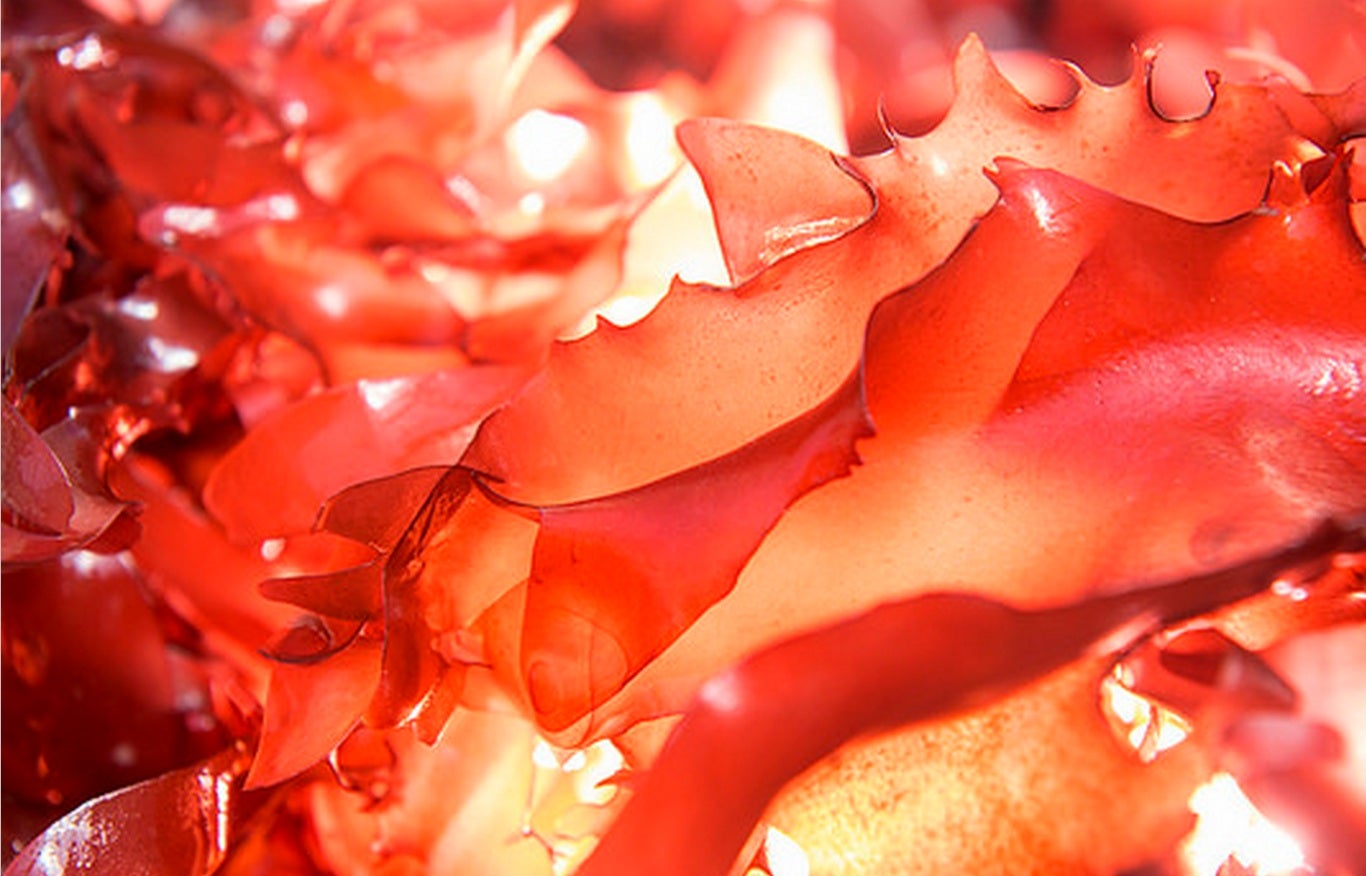FAO vegetarians: Scientists have discovered a seaweed that tastes like bacon
Sea vegetables could be the next big thing in restaurants

Your support helps us to tell the story
From reproductive rights to climate change to Big Tech, The Independent is on the ground when the story is developing. Whether it's investigating the financials of Elon Musk's pro-Trump PAC or producing our latest documentary, 'The A Word', which shines a light on the American women fighting for reproductive rights, we know how important it is to parse out the facts from the messaging.
At such a critical moment in US history, we need reporters on the ground. Your donation allows us to keep sending journalists to speak to both sides of the story.
The Independent is trusted by Americans across the entire political spectrum. And unlike many other quality news outlets, we choose not to lock Americans out of our reporting and analysis with paywalls. We believe quality journalism should be available to everyone, paid for by those who can afford it.
Your support makes all the difference.For vegetarians who occasionally crave the taste of meat, it's usually the smell of bacon cooking that's the most difficult to resist.
But soon they will be able to indulge without compromising their ethics, as Oregon State University researchers have patented a new strain of red marine algae called dulse which not only has a "pretty strong bacon flavour" but has "twice the nutritional value of kale".
The algae, which grows incredibly quickly, is usually ground and sold as a powdered cooking ingredient, but researcher Chris Langdon has created a new strain that he believes is better consumed whole.
"In Europe, they add the powder to smoothies, or add flakes onto food," Langdon said. "There hasn’t been a lot of interest in using it in a fresh form. But this stuff is pretty amazing. When you fry it, which I have done, it tastes like bacon, not seaweed. And it’s a pretty strong bacon flavour."
Dulse, which looks like translucent red lettuce, is also packed full of minerals, vitamins and antioxidants, a "super-food, with twice the nutritional value of kale".
With its unusual taste and ease of growth, dulse could become a staple in restaurants.
"The dulse grows using a water recirculation system," added Langdon, who can grow about 20-30 pounds of the stuff a week in his two tanks. "Theoretically, you could create an industry in eastern Oregon almost as easily as you could along the coast with a bit of supplementation. You just need a modest amount of seawater and some sunshine."
You can read more about sea vegetables, the 'next big thing', on OSU's website.
Join our commenting forum
Join thought-provoking conversations, follow other Independent readers and see their replies
Comments